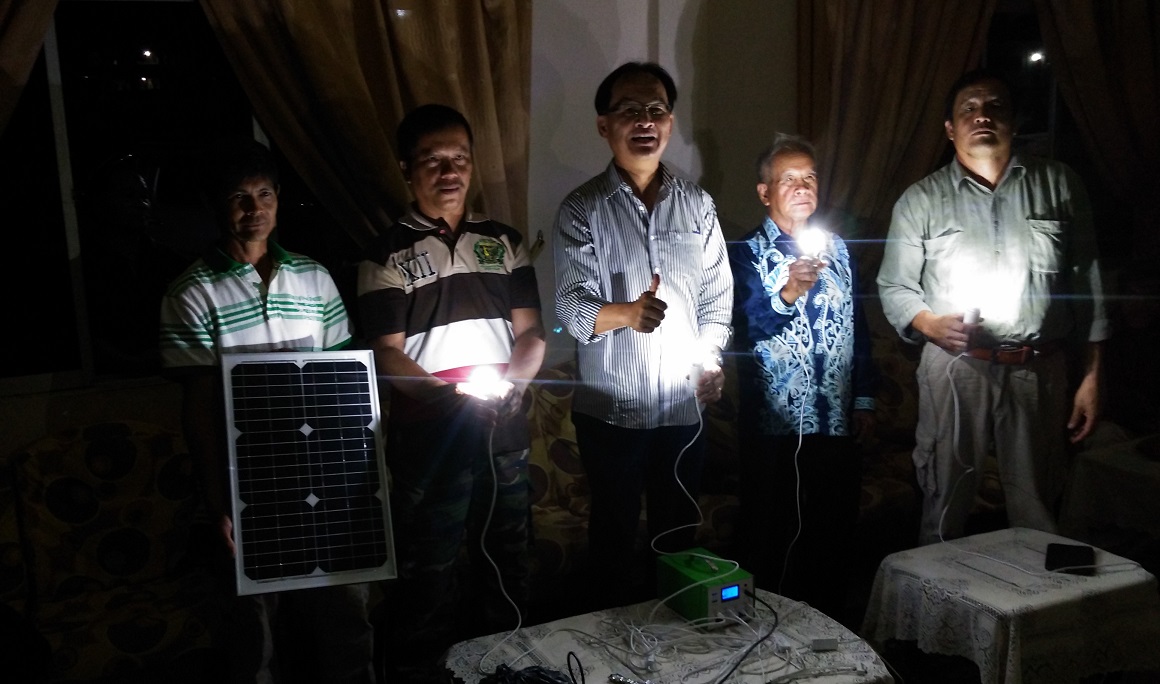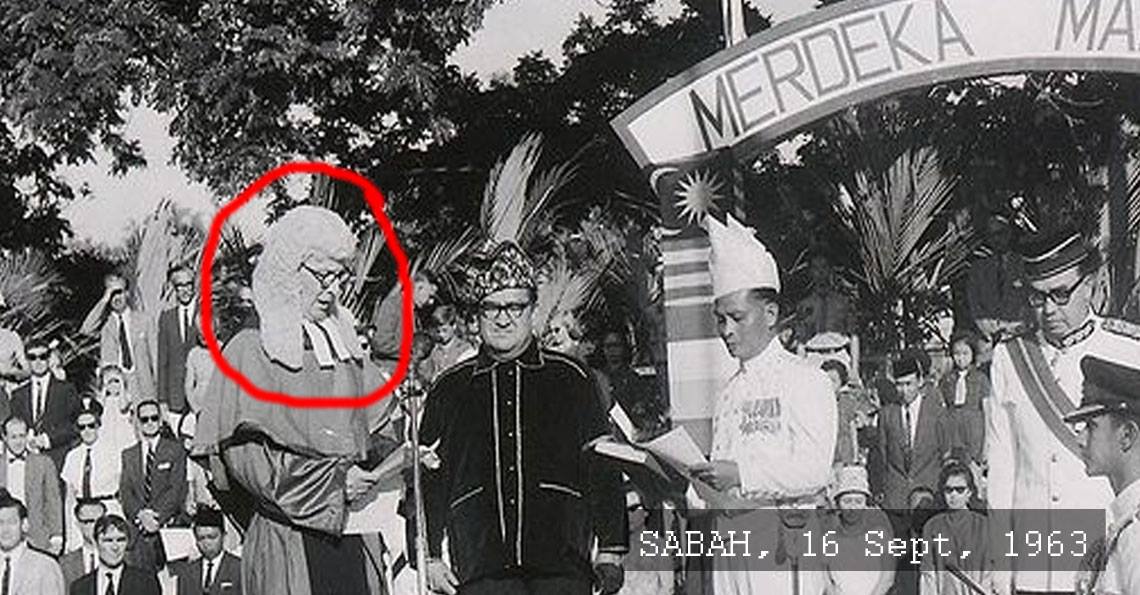Sarawak’s team of lawyers is going to London to research the Malaysia Agreement… but why now?

- 3.4KShares
- Facebook3.3K
- Twitter14
- LinkedIn7
- Email24
- WhatsApp68
Imagine having your spouse suddenly going to a lawyer’s office to ask about the legality of your marriage. While the analogy may not be perfectly accurate, it’s more or less how some Malaysians felt upon hearing that Sarawak is sending out a legal team to London to study the details of the Malaysia Agreement.
Commonly shortened to MA63 in recent times, the Malaysia Agreement is the agreement that combined North Borneo (an old name for Sabah), Sarawak and Singapore with the existing states of the Federation of Malaya (the states on Peninsular Malaysia) to form the Malaysia we all know and love today, minus Singapore. Oh, and Brunei was part of the deal, but they declined.

The decision was revealed at the very end of June by the current Chief Minister of Sarawak, Abang Johari Openg at an Aidilfitri gathering in Sibu. During the gathering, he had stated that the move is a continuation of the efforts of the former chief minister, the late Adenan Satem, to retrieve Sarawak’s rights as embodied in the said Malaysia Agreement.
“This agreement is not simply an agreement; we want to get the facts right because if we want to make a claim, we must do our homework, otherwise we are just shooting at the target without hitting it,” – Abang Johari Openg, as reported by MalaysiaKini.
The legal team is to be captained by Sharifah Hasidah Sayeed Aman Ghazali, the Law, Federal-State Relations and Project Monitoring assistant minister of Sarawak. Although the exact date has yet to be revealed, the trip will occur sometime in July.
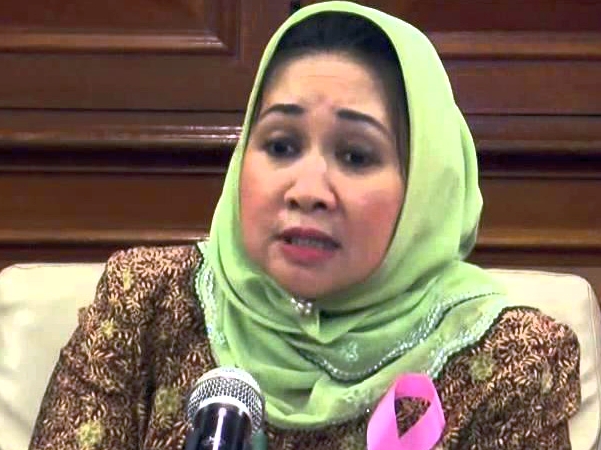
The Deputy Prime Minister, Datuk Seri Dr Ahmad Zahid Hamidi, had stated that looking at the legal aspects and social understanding leading up to the signing of the Malaysia Agreement in 1963 is the right of the Sabah and Sarawak governments. He had further stated that there were no issues that could not be resolved, and assured that the federal government will be ready to discuss matters with the Sarawak government after the research trip.
“We in the federal government are open to receiving the feedback that the Sarawak government will gather through its efforts,” – Deputy Prime Minister Datuk Seri Dr Ahmad Zahid Hamidi, as reported by The Sun Daily.
The decision to go to London was met with doubt and concern by other parties
Sarawak’s DAP had questioned the need to go all the way to London to study the MA63, when the said document was already available in Sarawak. Answering that question, Datuk Sebastian Ting, SUPP’s secretary general and Piasau state assemblyman had affirmed that they do have ample documents in their collection. However, he stressed that they
“…do not claim to have 100 per cent of the important references and documents relating the rights and conditions of MA63, and therefore, sending this legal team from Sarawak is the right thing to do. We do not know if there are other documents that we may have missed out. In order to prepare our position, we must have all the relevant documents for a full presentation,” – Datuk Sebastian Ting, for Malay Mail Online.
Zainnal Ajamain, an MA63 activist had stated that Sarawak’s decision in going to London to study documents pertaining to MA63 was justified as such documents weren’t available in Malaysia.
“What we have in Malaysia are three of the five original copies of the MA63, with the other two being in the UK and Singapore. But there are over 200,000 documents, letters, minutes of meetings and telegrams relating to the formation of Malaysia.” – Zainnal Ajamain, in an interview with Free Malaysia Today.
Having studied the MA63 for over 15 years, Zainnal had stated that there were many such documents leading up to agreement, and they are all now kept in the British National Archives in Kew, London.
Parti Amanah Negara, on the other hand, had expressed their concern that sending lawyers to London would be akin to inviting foreigners to interfere in local affairs.
“If this had been initiated by the opposition, the government would have slammed us … but this was initiated by the state government itself,” – Salahuddin Ayub, Amanah Deputy President for MalaysiaKini.
Besides saying that Sarawak should have tried to resolve the matter locally before going abroad, Salahuddin had also questioned whether the Sarawak government had consulted the federal government before making this decision, as the move suggested conflict within the Barisan Nasional coalition.
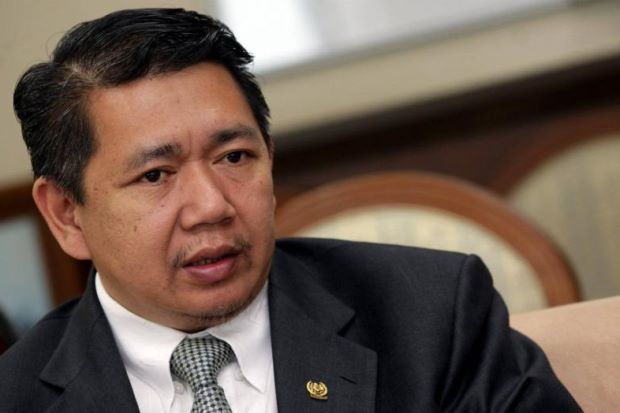
These statements prompted Zainnal to say that Salahuddin is clueless, as London, along with Malaya, Brunei, North Borneo, Sarawak and Singapore were all signatories of the MA63.
“So how can it be foreign intervention when the UK is a signatory? It’s not as if the Sarawak government is urging China or the United States of America to help Sarawak obtain its rights.” – Zainnal Ajamain, in an interview with Free Malaysia Today.
Regardless of who is doing it, the act of suddenly revealing that you’re going to London to take a closer look at the agreement that binds us all together for so long isn’t something that can be ignored. What brought that on, more than half a century after the agreement?
Within these last five years, there have been some controversial laws affecting East Malaysia

As will be evident in the following paragraphs, some may have hinted at the notion, but the Pakatan Harapan Youth had stated it outright:
“Malaysia had failed Sabah and Sarawak,”
According to them, Sabah and Sarawak are often ‘at the mercy’ of the federal government politically, and many young Sabahans and Sarawakians have to leave their states and seek employment elsewhere due to the failure of the current government to improve their conditions. Regardless of employment opportunities, there were indeed quite a few issues for the people of Sabah and Sarawak to be sore about.
The Territorial Sea Act (TSA), 2012
On the 22nd of June, 2012, the Territorial Sea Act (TSA) came into effect. The TSA 2012, to say it simply, strips away a state’s rights and jurisdiction over its seas to only three nautical miles (about 5 and a half kilometers) from its coastline. While this may not be as big of a deal in, say, Kedah or Malacca, for Sabah and Sarawak this means losing their rights to anything further than 5.5 kilometers from their shores, which includes marine life, mineral resources such as petroleum, and tourism sites.
As expected, this move wasn’t well received by the people of Sabah and Sarawak. Sharifah Hasidah from earlier claimed that the TSA 2012 had breached Sarawak’s rights under the 1963 Malaysia Agreement. Zainal Ajamain, an MA63 activist had claimed that the TSA was unconstitutional, as it seeks to take power over land, and pointed out that the wording of the act was ‘eerily identical’ to the Emergency Ordnance, which was lifted by the current Prime Minister back in 2011.
The Tourism Tax Bill
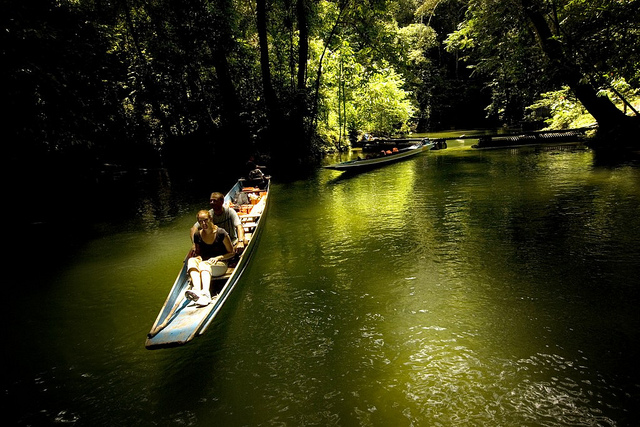
We actually did an article on this before, but as a refresher, the tourism tax is… a tax on tourism activities. It aimed to “develop the tourism industry, namely the enhancement of tourism infrastructure and facilities, as well as tourism promotional activities and campaigns for the country”, but not many people in the industry are very enthusiastic about it.
The Sarawak state government, for one, is opposed to it. According to the Tourism, Arts, Culture and Youth Minister, Datuk Abdul Karim Rahman Hamzah, the move is a “glaring example” of Putrajaya implementing policies without consulting the state.
“I see the imposition of the tourism tax in Sarawak as well as introducing the Tourism Tax Bill without informing the Sarawak state government as going against the spirit of MA63 (Malaysia Agreement 1963),” – Datuk Abdul Karim, for The Borneo Post.
He further states that both governments should have had a say in the matter, as tourism wasn’t in either the Federal or State List in the Malaysia Agreement. This issue led to quite a conflict between him and the Tourism and Culture Minister, Mohamed Nazri Abdul Aziz, after which Sarawak promptly withdrew its representatives from Putrajaya’s Malaysia Tourism Board.
Asking for an increase in oil royalties
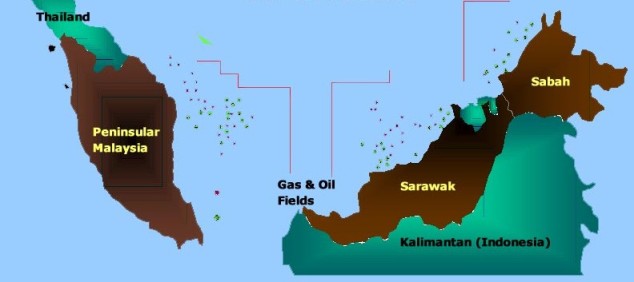
In Sarawak, a motion calling for Petronas to increase the oil royalty from 5% to 20% was tabled in 2014. This motion was supported by the state’s Barisan Nasional government, led by the late Chief Minister Adenan Satem. The demand for the increase eased up sometime last year, due to the slump in world oil prices, with Adenan saying that the state government will pursue the matter later. Unfortunately, Adenan passed away early this year from heart failure, and the torch was picked up by his successor, Datuk Amar Abang Johari.
While the demand for royalty increase is still on hold due to the oil price slump, See Chee How, Batu Lintang’s state assemblyman feels that there is no need to wait as Petronas had made good profit after tax in 2016 despite the price slump, and therefore could afford the increase.
“We must assert our sovereign rights to petroleum resources, our autonomy and authority over the remaining blocks and fields of oil and gas potentials yet to be awarded with the Production Sharing Contracts,” – See Chee How, Batu Lintang state assemblyman for Malay Mail Online.
These reasons have been discussed at length, with some saying that the TSA is undoubtedly constitutional, the tourism tax was discussed without excluding anyone, and there is really no legal need to increase the oil royalty.
But if there’s already an agreement in place, how can all these happen?
“…please do not pursue the idea of making Brunei the 12th State, Sarawak the 13th State and North Borneo [Sabah] the 14th State of the Federation. We are frankly not interested.” – Donald Fuad Stephens, founder of United National Kadazan Organization (UNKO).
Back before Malaysia existed, there were Malaya, Singapore, North Borneo, Sarawak and Brunei. Tunku Abdul Rahman, the then Prime Minister of Malaya, proposed grouping these five countries to form a federation. Singapore is willing, but it was unknown whether North Borneo, Sarawak and Brunei were willing or not.

So, a commission called the Cobbold Commission was created to gauge the willingness of the other nations to join Malaysia. As a result, it was determined that besides from a minority who would staunchly oppose the idea of Malaysia no matter what, a majority of Sabahans and Sarawakians were willing to join, provided that there will be safeguards to their rights.
These safeguards came in the form of the 20/18 points of agreement, also known as the 20-point memorandum and 18-point memorandum submitted by North Borneo and Sarawak respectively, as their conditions for joining Malaysia. Among the points are the special position of indigenous races, constitutional safeguards, and the right of secession, among others. However, while some of the points in these memorandums were eventually incorporated into the current Federal Constitution, others were only accepted orally, and never gained a legal status.

One of the more discussed points in the agreements is the one pertaining to the name of the head of state, which is Yang di-Pertua Negara. In recent years, the title for Sabah and Sarawak’s heads of state had been somewhat ‘demoted’ to “Yang di-Pertua Negeri“, most likely to make the title similar to the ones for Malacca and Penang, who also had governors as the heads of state instead of sultans. As some had argued, this should not happen as Malacca and Penang were part of the original Malaya Federation, whereas Sabah and Sarawak were separate entities.
This brings us to the problem of thinking of and referring to Sabah and Sarawak as states (negeri-negeri) of Malaysia. Sarawak’s Local Government Minister, Datuk Dr Sim Kui Hian had urged the late Adenan Satem to stop referring to Sarawak as a state within the federation, instead to refer to it as a region.
“When talking about Sarawak’s fight for autonomy, I see that Sarawak is still referring itself as a state in Malaysia that is not consistent. Sarawak should refer itself to just Sarawak from now on and not Negeri Sarawak (Sarawak state) in order to be seen as serious in fighting for autonomy,” – Datuk Dr Sim Kui Hian, for Borneo Post.
Dr Sim, who is also the current president of the SUPP, feels that the people of Sarawak, particularly the younger generation, should understand not only the 1963 Malaysia Agreement, but also the Cobbold Commission Report, Malaysia Act 1963 and the Report of the Inter-Governmental Committee 1962 (IGC), which includes safeguards for the special interests of Sabah and Sarawak based on the recommendations from the Cobbold Commission Report.
He had stressed, however, that he is not against the formation of Malaysia in the first place, but is fighting for Sarawak and Sabah’s rights as stated in the aforementioned documents. Dr Sim felt that these rights have eroded over the years and should be reinstated to the two regions.
“We are not being greedy here. We are just asking what was promised to us. There is no renegotiation as they were already promised to us before the formation of Malaysia and they are rightfully ours,” – Datuk Dr Sim Kui Hian, for Borneo Post.
With the recent passing of Adenan Satem, some have feared that there may not be another single voice that dares to stand up to Putrajaya. However, through the whole controversy surrounding the decision to re-examine the MA63, we have seen not only one voice standing up for their rights, but many. Perhaps, for Sarawakians, there is something to look forward to after all.
- 3.4KShares
- Facebook3.3K
- Twitter14
- LinkedIn7
- Email24
- WhatsApp68

